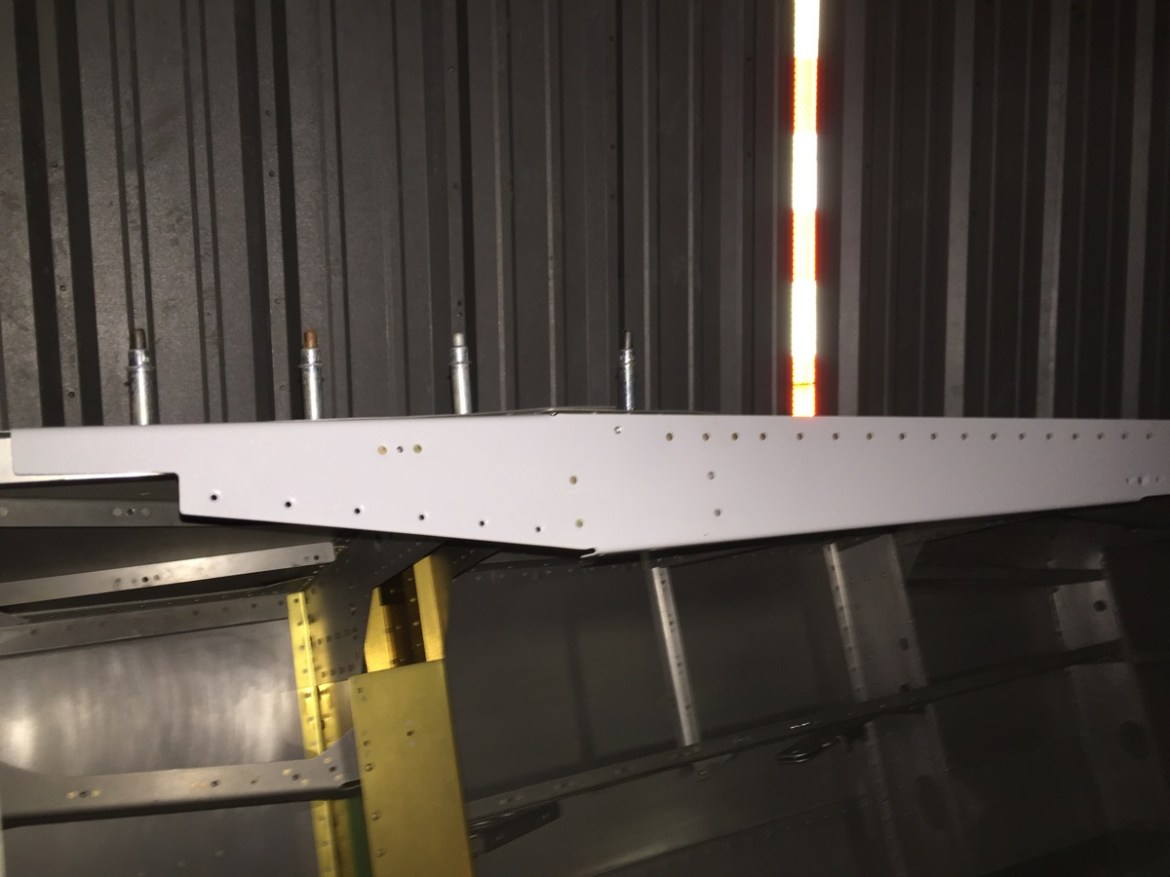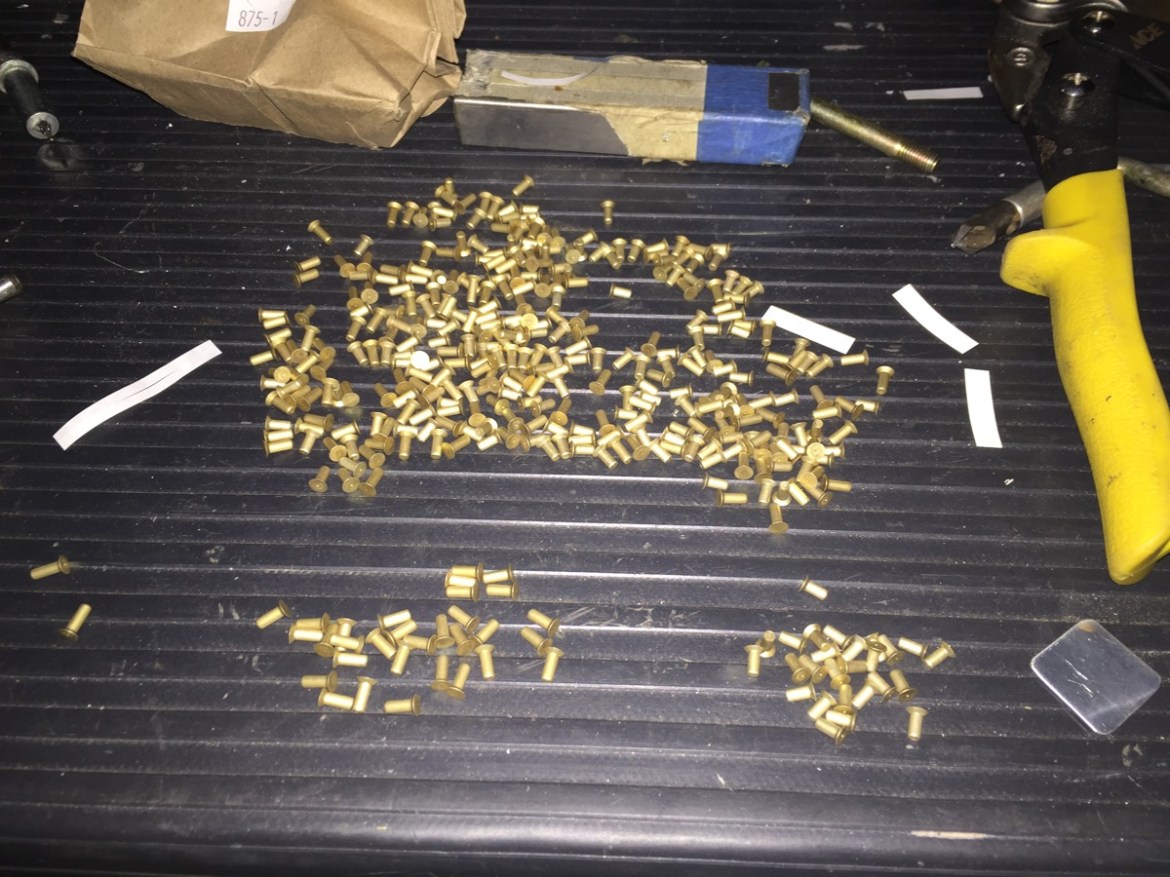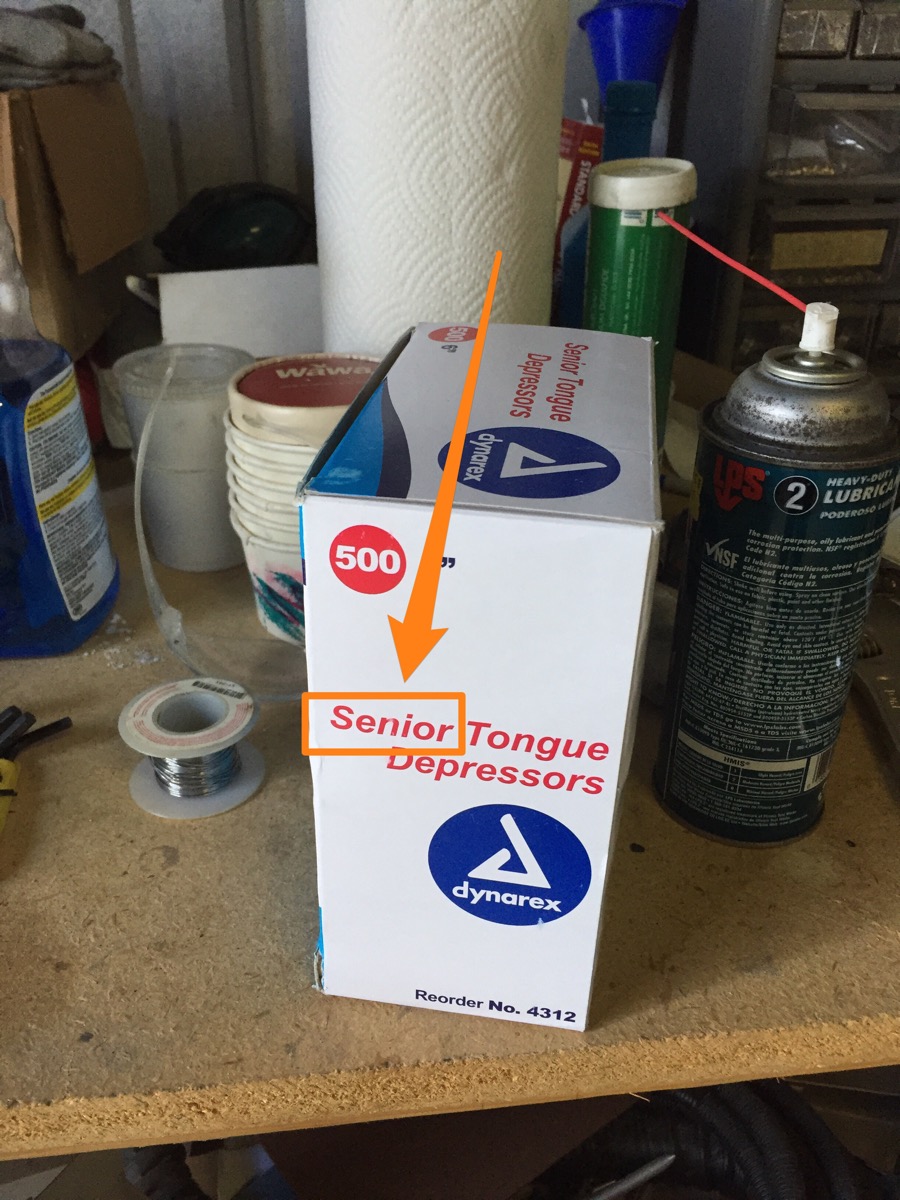I’ve done a lot of traveling in November, and I’ve not updated this blog accordingly when I have had time to get to the shop. This post comprises several shop sessions (3 or 4 I think).
First I finished up the cockpit rails. This included rivets that would be under the forward upper fuselage skin. 
Here you can see the rivets that do not go through the upper fuse skin installed.

I also inventoried and stored all the parts from the finishing kit. There were several mistakes in packing. In almost every instance the bag included rivets a size smaller than indicated. I guess someone had something labeled wrong. 
I have been debating for some time whether or not to modify my side consoles. But you know what? Thinking about it slowing me down. I decided to do them stock for now, and I can change them later on if I so desire. To that end I began working on the right console first. This requires installation of the cover show here so you can drill the locations for the nut plates.

Here I have the console installed in preparation for drilling the bulkhead cap / cover for screws and nut plates. 
The modified bulkheads (due to the new fastback rails) require new holes in the upper portion, and shown here. This also means you need to slightly modify the bulkhead caps to fit.

A little light work with the scotchbrite wheel is all that is needed to make the caps fit.

Next up the left console which houses the throttle quadrant. First step is to remove the tab shown here. 
Then you need to fabricate the cable anchor. This may be a small part, but its a substantial task. First cut to the appropriate dimension. Be sure to read the height required BEFORE adding the radius. There are two measurements immediately next to one another. I read the wrong one, but luckily I was able to salvage it.





I also rearranged some of my parts, and labeled new items. Staying organized is a constant struggle, but certainly helps when you need to find something. 
The cable anchor is match drilled and then you must tap it 8-32 for screws.


Here is the pilot hole and centerline I drew. Note the INCORRECT centerline to the right that I drew before fully consulting the drawings.

I was over in Bullock’s hangar, and I noticed that he is finally purchasing age appropriate items. 
Here you can see my vice being used to provide a stable level surface for the tap. This is a pain in the butt. 3 of the 4 turned out great, but one isn’t. I will likely tap that again for a large size screw.

I am trying to get every part that I can ready for installation in the interior. I haven’t even seen these side panels referenced in the instructions, but preparing them is just a matter of a quick match drilling and deburring. 
My pile of parts ready for priming is growing again. This fuselage may still look almost like the day it arrived, but holy cow is there a serious pile of parts ready for riveting. Sometime soon there are going to be a few posts with major progress! 😀

At this point I’ve almost run out of tasks to do, without either installing the empennage or the wings. Yes, I could begin riveting some items in the cockpit, but its best to keep things open for the time begin. That said, its time to modify the vertical stab for the turtle deck. I took it down off its hanging place to have a good look at what was required. 


Here’s a good figure from the Showplanes instructions on the vertical stabilizer modification. Next time!
